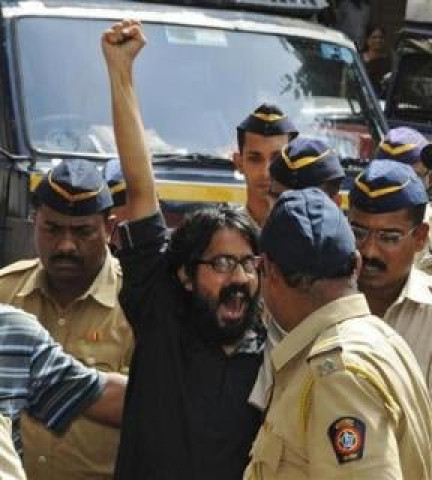A cartoonist in India
Aseem Trivedi arrested in Mumbai on charge of sedition for cartoons, which allegedly mocked the Indian Constitution.

In a democracy, citizens are encouraged to speak out when they have differences of opinion with the government, as that is the way to move forward, by incorporating everyone’s opinions in government policies and giving all citizens an equal say. Thus, when Mr Trivedi, a citizen, expressed his opinions — and possibly those of many in India — he should have been allowed to do so freely. His cartoons did not impinge on anyone’s rights and only sought to achieve an honest government for the improvement and advancement of India. However, recently, it seems that the Indian government has become more stringent on people’s expression of freedom. Earlier, the government banned Mr Trivedi’s cartoon website and in April, the Indian police arrested a professor in Kolkata for publicly posting cartoons that ridiculed West Bengal Chief Minister Mamata Banerjee.
The fact that Mr Trivedi was called out by a lawyer, draws a contrast to Pakistan’s own lawyers, who showered Mumtaz Qadri with garlands for murdering Salmaan Taseer, a man who had spoken up against the misuse of a law. However, this is a surprising move by the Indian government. It is a violation of democracy and a person’s freedom of expression. While we cannot help but look inwards towards Pakistan on the anti-corruption issue, India should also show more tolerance for its people’s dissenting views — especially since the Indian parliament has been in turmoil for the past two weeks.
Published in The Express Tribune, September 12th, 2012.















COMMENTS
Comments are moderated and generally will be posted if they are on-topic and not abusive.
For more information, please see our Comments FAQ